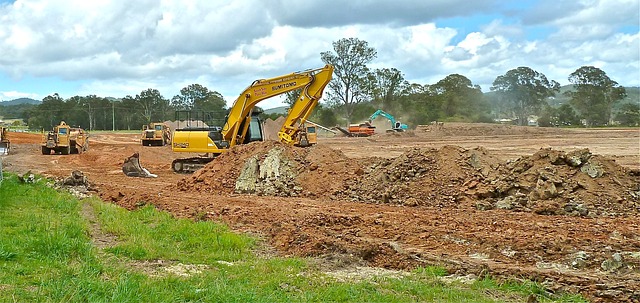Civil engineering is the field of engineering that deals with the design, manufacturing, and maintenance of natural and man-made infrastructures. Civil engineers can work in the public or private sector.
The infrastructures they work on can include dams, bridges, roads, airports, pipelines, railways, sewage systems, power plants, and sports stadiums. Civil engineering projects can vary in scale and can be for either private or government-sponsored projects.
What Do Civil Engineers Do?
Civil engineers design and plan construction projects, act behind the scenes, and even take on roles within project management, planning, budgeting, research, and analysis. As the second-oldest engineering field—after military engineering—civil engineering is a broad and diverse field that covers a huge range of construction projects.
Although civil engineers can work in a variety of different sub-fields, their main goal is to figure out the financial, economic, and environmental costs of a project. They also make sure that everything is flowing well and working according to plan and in compliance with any regulations.
Civil engineers can work in an office and plan, design, and arrange the physical and financial aspects of the project. They also work on construction sites and carry out investigations, risk assessments, and surveys and collect data for mapping or construction plans. If any natural or man-made infrastructures need to be removed, civil engineers can also work on those projects.
During the planning and designing stages of their projects, civil engineers often use surveying and mapping technologies, including digital twin technologies.
One of the main duties of a civil engineer is to consider the environmental impacts of the structure they’re building and to assess the measures that can be taken to make sure these structures aren’t damaging the environment.
Civil engineers also identify ways for their structures to benefit the environment. The opportunity to install devices using solar energy or irrigation systems that help grow crops is a significant consideration when planning and designing infrastructure.
By constructing railways and airports, civil engineers have an active role in connecting the world, contributing to globalization and trade.
Civil engineers play a crucial part in the development of global advancement, and without the contribution of civil engineers, the expansion of global trade, connection, and travel would be significantly stunted.

via Pixabay
What Are the Types of Civil Engineering?
There are lots of different types of civil engineering, and they range from general construction and structural engineering projects to specific types like earthquake and fire protection engineering.
Civil engineering is a diverse and versatile industry, capable of undertaking a variety of infrastructure projects—large or small. There are also subdivisions of this field that make it easier to assign individual projects.
Below, we’ve gathered some examples of civil engineering and explained them in a little more detail.
Construction and Management Engineering
Probably the most well-known form of civil engineering is construction and management engineering. It involves the design, management, building, and maintenance of public and residential construction projects.
Construction engineering management uses scientific principles and critical thinking to improve a project. New designs, faster processes, and innovative solutions can all be accomplished by applying new methods, scientific reasoning, and out-of-the-box thinking. Equipment like drones and LiDAR technologies can also be used to streamline these processes.
Civil engineers have a hand in the whole process, from designing and planning the construction of the project to performing risk assessments and preparations for building and maintenance developments.
Geotechnical Engineering
Geotechnical engineering tackles the construction of bridges, roads, slopes, tunnels, etc. that are surrounded or supported by rock or soil.
A critical part of geotechnical engineering is knowing how the structure will impact its surrounding environment and assessing which construction processes can prevent the least amount of environmental damage.
Geotechnical engineers figure out how or if structures can be built in or around natural spaces with minimal risk of future damage. The types of rocks and soils in the proposed area are carefully studied during the planning stage so that no structures end up collapsing or being damaged during natural disasters.
The surrounding areas are inspected before construction starts to decide whether or not the construction site is susceptible to floods, landslides, avalanches, or other severe natural conditions.
Structural Engineering
Structural engineering is the designing, planning, preparing, and construction of modern buildings and other man-made structures.
Structural engineers design the internal framework of these buildings, making sure that the building can handle any physical pressures or environmental strains it might face.
Structural engineers carefully decide which materials to use to guarantee the maximum strength and stability of their projects. These projects can be things like shops, theaters, offices, apartment blocks, and even satellites, bridges, or hospitals.
Transport Engineering
Transport engineers plan, design, and construct transport networks like railways, roads, and airports.
Mitigating normal wear and tear is a large part of the job for transport engineers. Unlike most buildings, railways or roads will be consistently and heavily used by semi-trucks, trains, cars, and vans, and having to stop traffic for construction every year—or more often—will end up being much more expensive in the long run.
This is the main reason why maintenance has to be consistent. The continuous and heavy use of transport systems and their infrastructures means that maintaining these infrastructures is essential to avoid costly fixes or harming the people who use them for travel.
No matter how strong the initial design and construction of the system are, there is no way to completely prevent the wear and tear of these infrastructures, and it’s impossible to tell exactly how much these structures will be worn down year after year. Making sure they’re maintained correctly and often can help them last for many years to come.
Water Engineering
Water engineering, also known as hydraulic engineering, focuses on the construction of water-based projects. The process of designing and constructing these projects relies heavily on environmental factors. Water keeps every living thing alive and is one of the most powerful forces on earth.
To protect our planet and conserve water, we’ve had to make significant changes in the way we operate as a global society, being especially careful about how and where we build. We’ve also learned a lot about what we should build them with, how to sustainably power them, and how these structures impact the surrounding environment.
This is a big part of the water engineering process. Hydraulic engineers have to find the balance between changing landscapes to build structures for human use and preserving the original natural systems in the area.
Knowledge about the physical and scientific principles of water is essential, especially in understanding the behaviors of water. Water engineers’ duties are wide-ranging, tackling subjects like water and wastewater treatment, water processing and distributing systems, irrigation systems, and water infrastructure.
Global temperatures are increasing by 0.32°F each year, causing sea levels to rise by 3.9mm in the same amount of time. The impacts of climate change have also left 1.47 billion people vulnerable to floods, so there’s more water to deal with now than ever before.
Because water is now an even more important topic, with some parts of the world having too much and some parts having too little, water engineers are not only needed to build structures that can cope with this increase, but as the experts in water behavior and conservation of the environment, they can contribute significantly to research projects that combat climate change.
Water engineers are heavily involved in the design and construction of water infrastructures that can ease the impacts of climate change. They conduct flood risk assessments and develop solutions that improve drainage systems, they design, construct, maintain and, monitor dam systems and make contingency plans for areas susceptible to drought.
These are all water engineering projects that can improve our response to climate change and make sure that each part of the world has the water it needs.

via Pixabay
What Skills Do Civil Engineers Need?
All civil engineers must have a basic understanding of construction management and building projects. They have to have the education to oversee and plan construction projects and should have the know-how to make sure that projects are being built and developed safely, that they are as stable as possible, and that they cause as little environmental damage as possible.
For example, if your specialty is structural engineering, you should be an expert in building materials, stability, and rigidity. You’ll also need to be fluent in the laws of physics and other scientific principles that will help your building withstand severe weather conditions and general wear and tear.
On the other hand, if you specialize in water engineering, you’re more likely to have expertise in water behaviors and the biological and geographical impacts and influences of areas that are primarily made up of water. Water engineers should also be experts on the effects of floods, rising sea levels, and how large bodies of water affect the land around them.
Some of us don’t realize how much civil engineers have to be aware of geographical and environmental influences when designing and constructing projects. Civil engineers should not only have construction skills, but also research, IT, problem-solving, and analytical skills.
How to Become a Civil Engineer
We’ve outlined the best ways to get a job in the field of civil engineering below.
1. Getting a Degree
The first step is earning a Bachelor’s Degree in Civil Engineering from an accredited university. This is the most common way to get into the field and you would study architectural design, mathematics, statistics, fluid dynamics, and other geographical principles that could impact the condition of infrastructures and the way they’re built.
In addition to science, geography, and design classes, as a civil engineering student, you’ll get hands-on experience by participating in fieldwork that usually teaches the investigation and design stages of construction.
2. Completing an Internship
This step should be completed as part of your degree program and should take at least one semester. The internship should consist of hands-on job-related activities so that you can apply what you’ve learned in the classroom to get an idea of what day-to-day life is like as a civil engineer.
3. Pick a Speciality
While you’re earning your degree, you should pick which specialties best suit your skills and interests. This way you can choose what sub-discipline suits you best and then you can try and get an internship in that specific field.
4. Get an Entry-Level Job
After graduating and getting a little experience from your internship, you can start applying for jobs. Once you’ve secured a job, you can work your way up as high as you want.

via Pixabay
Civil Engineering Career Opportunities
With experience from civil engineering jobs, you can get jobs in other areas of engineering. Also, depending on your expertise and what area of civil engineering you’re in, civil engineering can be a stepping stone toward upper-management roles, especially those at construction companies.
You could specialize in a specific field of engineering and apply for construction companies in any area you’d like. You could even be a research analyst if you’re more interested in the regulations, boundaries, and mathematical standards of construction projects.
You could also be self-employed, consulting, researching, or planning projects for individual clients.
What Does Civil Engineering Pay?
The median salary for a civil engineer was $88,050 as of 2021. Specific salaries will depend on your experience, location, responsibility, and level of education.
You’ll get paid more if you get a senior management job, which can have a salary of more than $100,000. At the lower end of the salary scale, civil engineers can be paid around $60,000 per year, which is for those with less experience.
Civil engineering is a well-paid job, but you’ll have to get a degree. The work is hard and you’ll most likely have to work regardless of weather conditions, but it’s worth it if you’re doing something you know is making a difference.
Final Thoughts
Civil engineering is a field that has many different parts to it, and you could have the opportunity to work in design, research, or construction in a lot of different areas. You could have the opportunity to work on large structures, transportation systems, environmental impact projects, and water conservation.
No matter your specialty, civil engineering can be a lucrative field, giving you the opportunity to create environmentally-friendly infrastructures and help vulnerable communities conserve one of the most important resources on earth.
Head over to the Fenstermaker engineering service page for more information about civil engineering and its uses.



